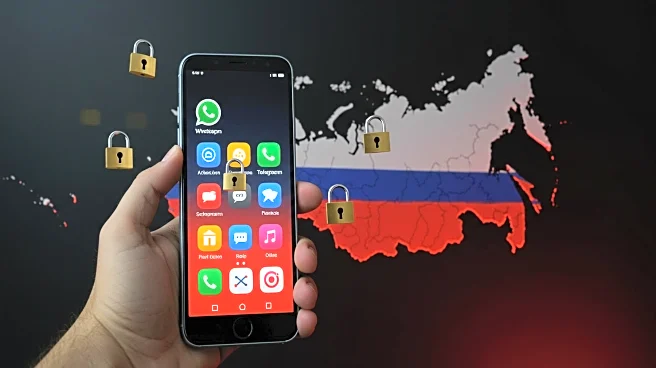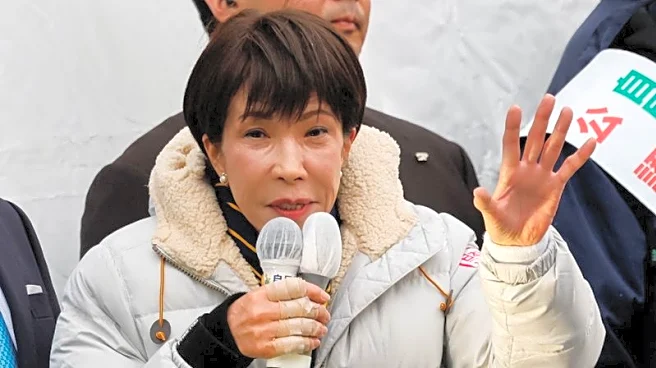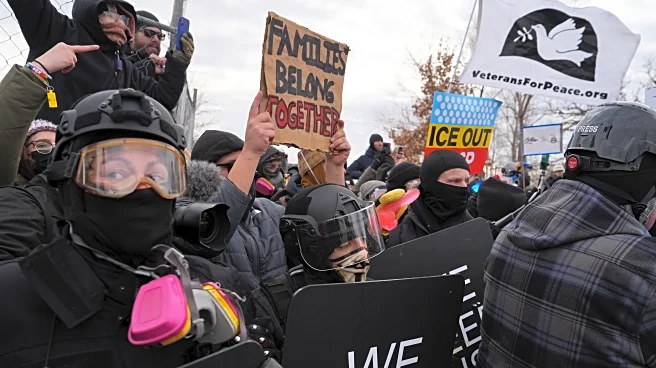What is the story about?
What's Happening?
Russia has imposed restrictions on calls made through WhatsApp and Telegram, claiming the move is necessary to counter criminal and terrorist activities. The Russian telecommunications agency, Roskomnadzor, stated that these messaging apps have been used for deceit, extortion, and involvement in sabotage and terrorist activities. WhatsApp has responded by asserting that its end-to-end encryption defies government attempts to violate secure communication rights, while Telegram emphasized its proactive measures against harmful content. The restrictions come amid reports of difficulties in making calls via these apps and Russia's plans to introduce its own national messaging app, Max.
Why It's Important?
The restrictions on WhatsApp and Telegram highlight ongoing tensions between Russia and global tech companies over privacy and security. This move could impact millions of users in Russia, potentially limiting their access to secure communication channels. The introduction of a national messaging app raises concerns about increased surveillance and control over digital communications. These developments may also affect international relations, as tech companies and governments navigate the balance between security and privacy rights.
What's Next?
Russia's push for a national messaging app may lead to further restrictions on foreign platforms, affecting user privacy and communication freedom. Tech companies like WhatsApp and Telegram may continue to resist government pressures, potentially leading to legal and diplomatic challenges. The situation could prompt international discussions on digital rights and the role of governments in regulating communication technologies.
















